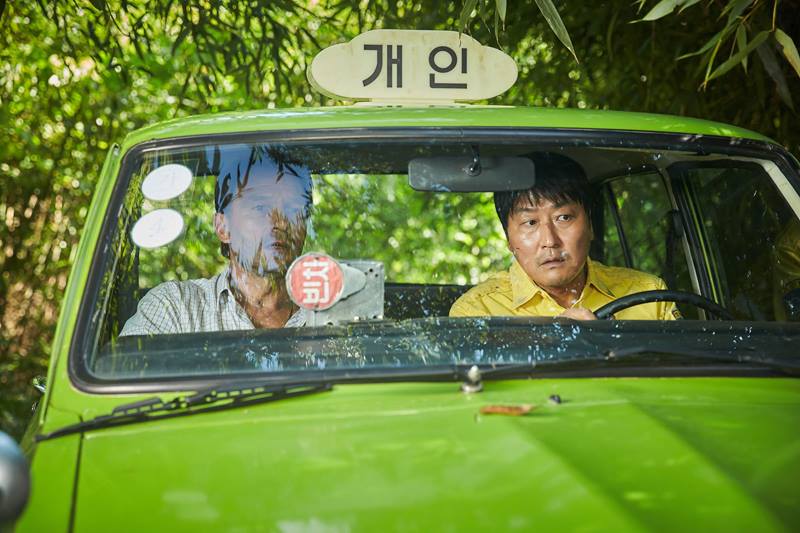A journalist and cab driver risk their lives to report from the front lines in A Taxi Driver
Directed by Jang Hoon, A Taxi Driver starts out as a light film about Man-Seob, a cranky cab driver in Seoul. The year is 1980, and the demonstrations against Dictator Chun Doo-hwan’s martial law are an unnecessary wrench thrown into Man-Seob’s routine. He curses the student protestors getting in his way and damaging his taxi.
A widowed single-father with rent to pay, salvation seems to come along when Man-Seob overhears another taxi driver boasting about a foreign customer. For an enormous sum, all the driver has to do is bring the foreigner to Gwangju and back before the curfew. Man-Seob sneaks off and steals the passenger, thinking he’s struck the best deal of his life.
But as they approach Gwangju, things quickly become violent. The military have turned on the students and civilians, shooting, beating and shoving innocents around. Amid the bloodshed, Man-Seob’s passenger, a German journalist, is capturing the violence on tape with the intent of broadcasting the injustice to the world. This quickly puts a target on their backs, as the government has no intention of letting word escape Gwangju.
The film, which had its international premiere at the Fantasia Film Festival on Aug. 2, does a superb job not only of depicting the clashes between the military police and demonstrators, but also between the journalist and Man-Seob. Whereas one wants to hightail it back to Seoul, the other wants to edge closer to the front lines. Incredibly, the story is inspired by true events that took place during the Gwangju revolt in 1980.
The tone of the film is intricately linked to Man-Seob’s perception of the demonstrators. While lighthearted in the beginning, the film grows more somber as his eyes are opened to the police’s unnecessary violence, and he sees the bodies gradually pile up. A Taxi Driver is a story of the strength of democracy and the lengths to which people will go either to hoard or share power.
